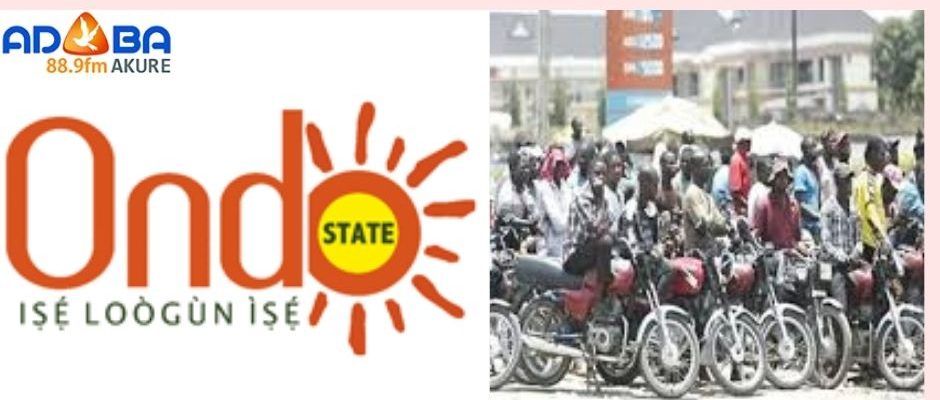Restriction on commercial motorcycling in Ondo state, need for govt to address inequality, ensure inclusion and justice
By Oladimeji Daniels
On Friday, the administration of Akeredolu placed a 12-hour daily restriction on the operation of commercial motorcycling, otherwise known as okada, in Ondo State. The implication of this is that okada riders are now only allowed to operate from 6AM to 6PM.
Likewise, the state government issued a stern warning to owners of vehicles with tinted glasses without a permit from the relevant security agencies. The penalty for flouting the two latest directives is that such motorcycles and vehicles will be impounded. What will happen thereafter was not contained in the statement by the commissioner for information, Donald Ojogo.
The reason adduced for this reason is the spike in criminal activities such as robbery, kidnapping and in some cases, murder in the state. In recent days, we have had news of kidnapped market women amongst others. Car theft has also made the news. Certainly, there would be many unreported instances of burglary or home invasion, especially with the seemingly lack of morale that we have seen in our security agencies as a fallout of the EndSARS protest.
The statement by the Ondo State government notes that it has received intel that is deserving of serious attention. The governor therefore directs all security agencies to check the latest trend, with a promise to provide the necessary support needed to achieve this.
The trend in Ondo State is same as other parts of the country and so no one could blame the Akeredolu government for the state of insecurity. The blame rests on the shoulder of government at the federal, state and the stifled local government – stifled because they can hardly breathe without the spoon-feeding of the state government.
The world over, security experts would admit that development and security rests on justice, peace and inclusion. Security can never be attained without these things. Ours is a society where government seems to be always putting the cart before the horse.
It is true that government must take action to ensure security, but the ruling class in Nigeria must begin to see a relationship between the upsurge in crimes and the uneven distribution of wealth apparent in the lack of inclusion and unemployment. In fact, commercial motorcycling is not a feature of a well developed nation or any nation on the path of development. Okada riding was an ingenious child of unemployment that many who could not take to crime had seen as their succour.
This directive, in as much as it would have its impact, will create many woes. Many who work late and are not mobile rely on commercial motorcycles to get to many of the unmotorable areas they live in. Many of such people would become stranded at nights and may have to trek home. How secure can trekking at night be? What is the plan of government for this category of people?
Some of these okada riders are civil servants who have to make ends meet since the economic woes in the country have created a serious dent on their salaries. This is coupled with the fact that sometimes salaries may not come on time. Evening is the only time this category of people get to do okada work since morning and afternoon would have been spent in the office. Their inability to do okada work would create further economic strain on their family finances. Those in this category are not just civil servants. There have been tales of policemen doing okada work as well.
Sometimes, what government would have devoted to creating employment and evenly distribute the nation’s commonwealth is nothing compared to what is used in ensuring security through procurement of arms and ammunition and other logistic support for security agencies.
To sincerely ensure security, government must strengthen inclusion and be committed to addressing inequality. There must also be a commitment to human rights.
During the International Day of Peace in 2018, ChildFund, an international and domestic peace-building organisation, in a joint statement, notes that if the current trends persist, by 2030 more than half of the world’s poor will be living in countries affected by high levels of violence.
As security measures are being put in place, government must think about how to check the fallouts from such measures. Also, government must focus on even distribution of wealth. Otherwise, we would all be deceiving ourselves.

